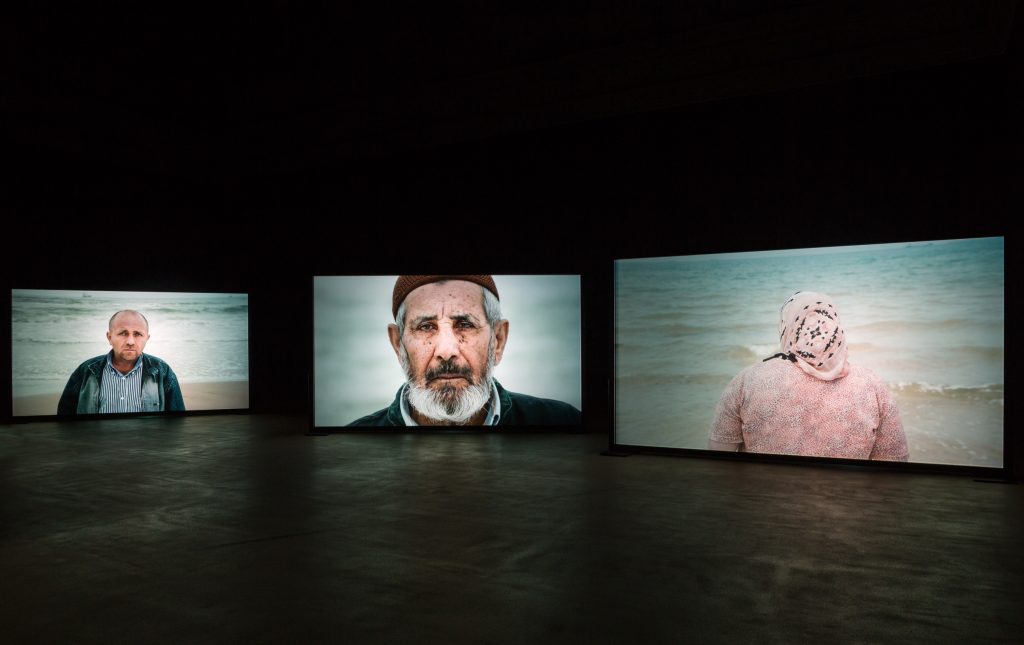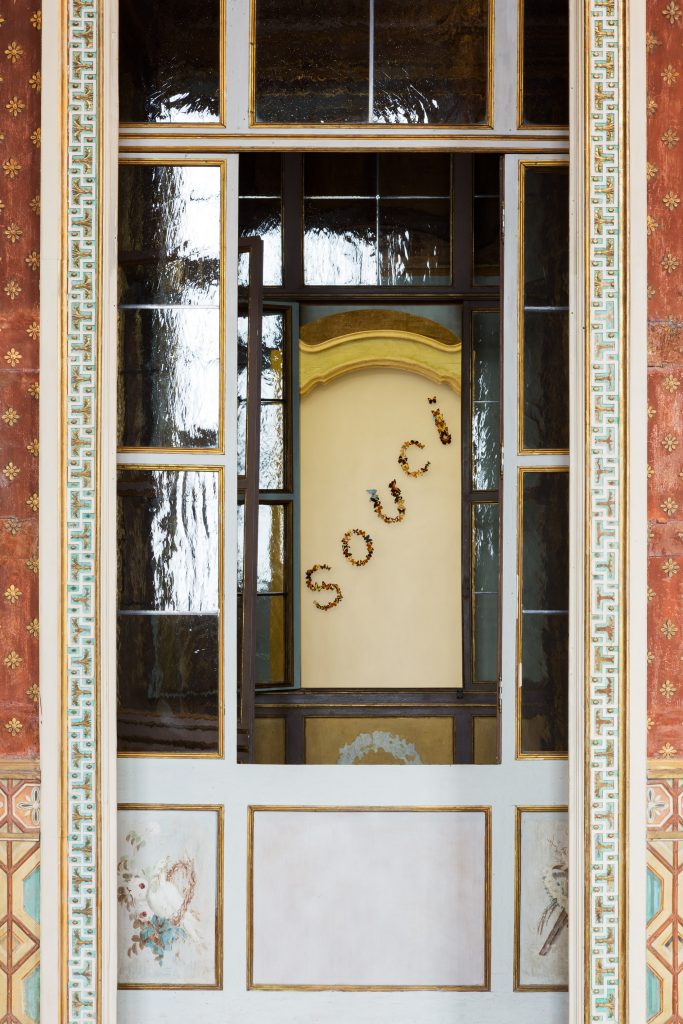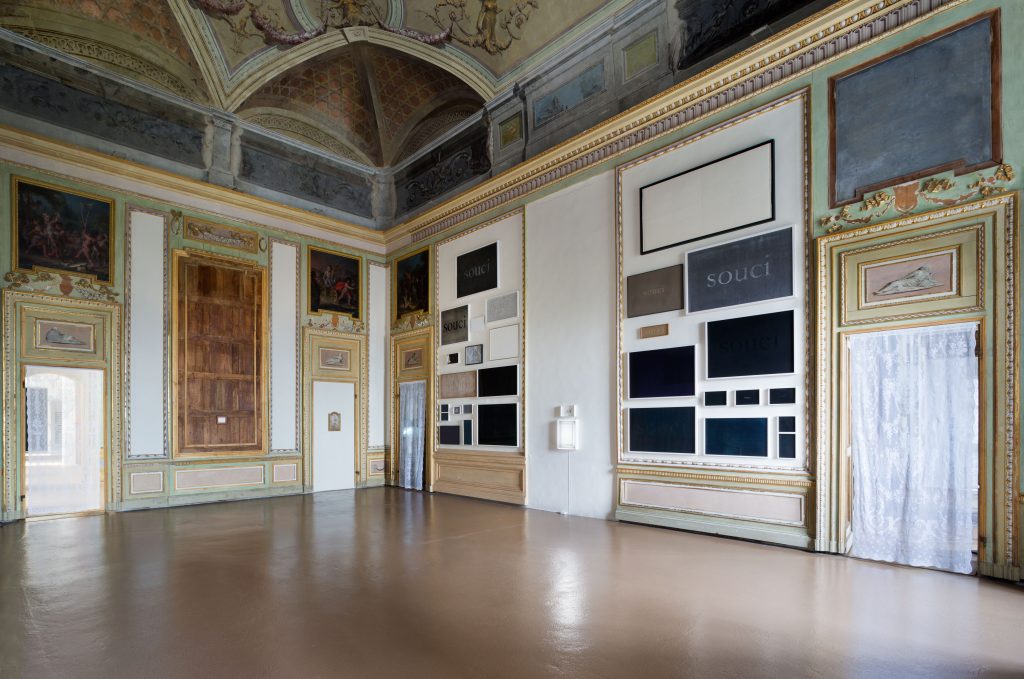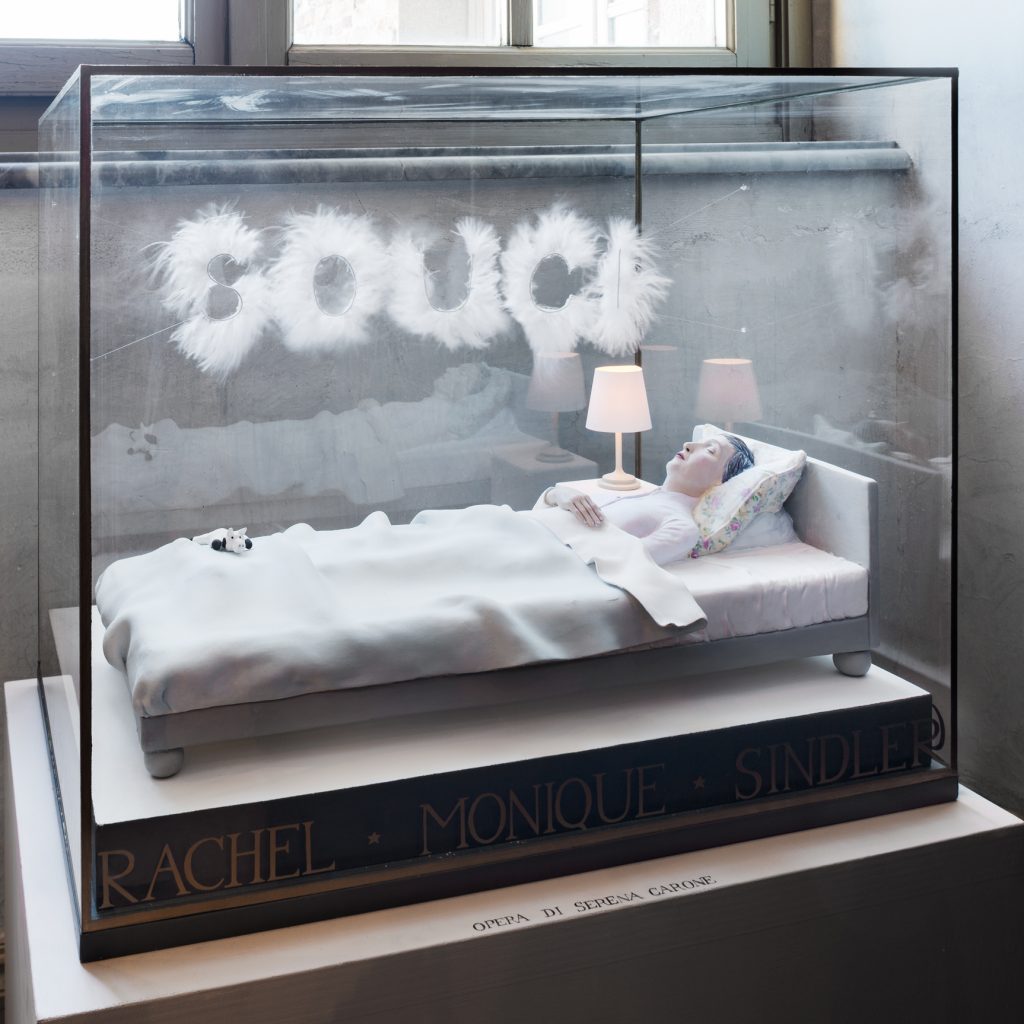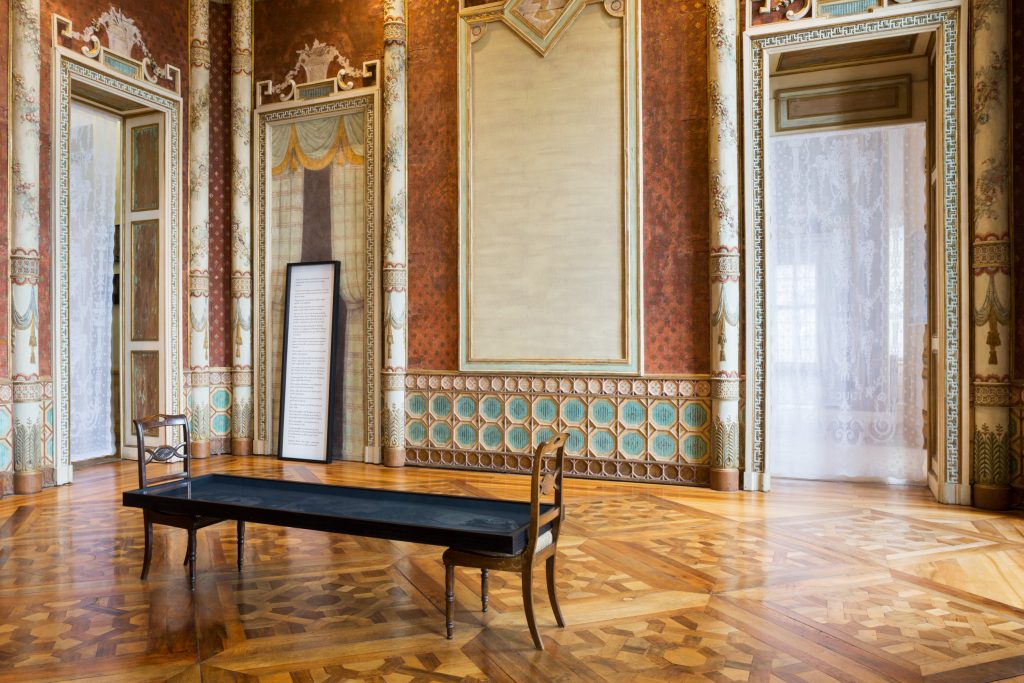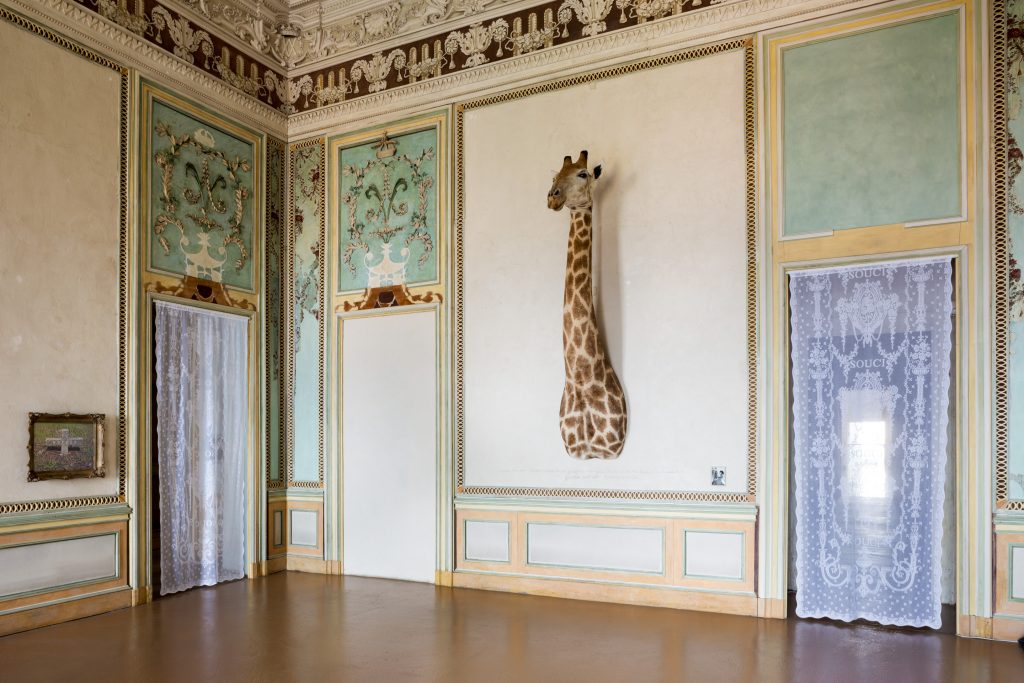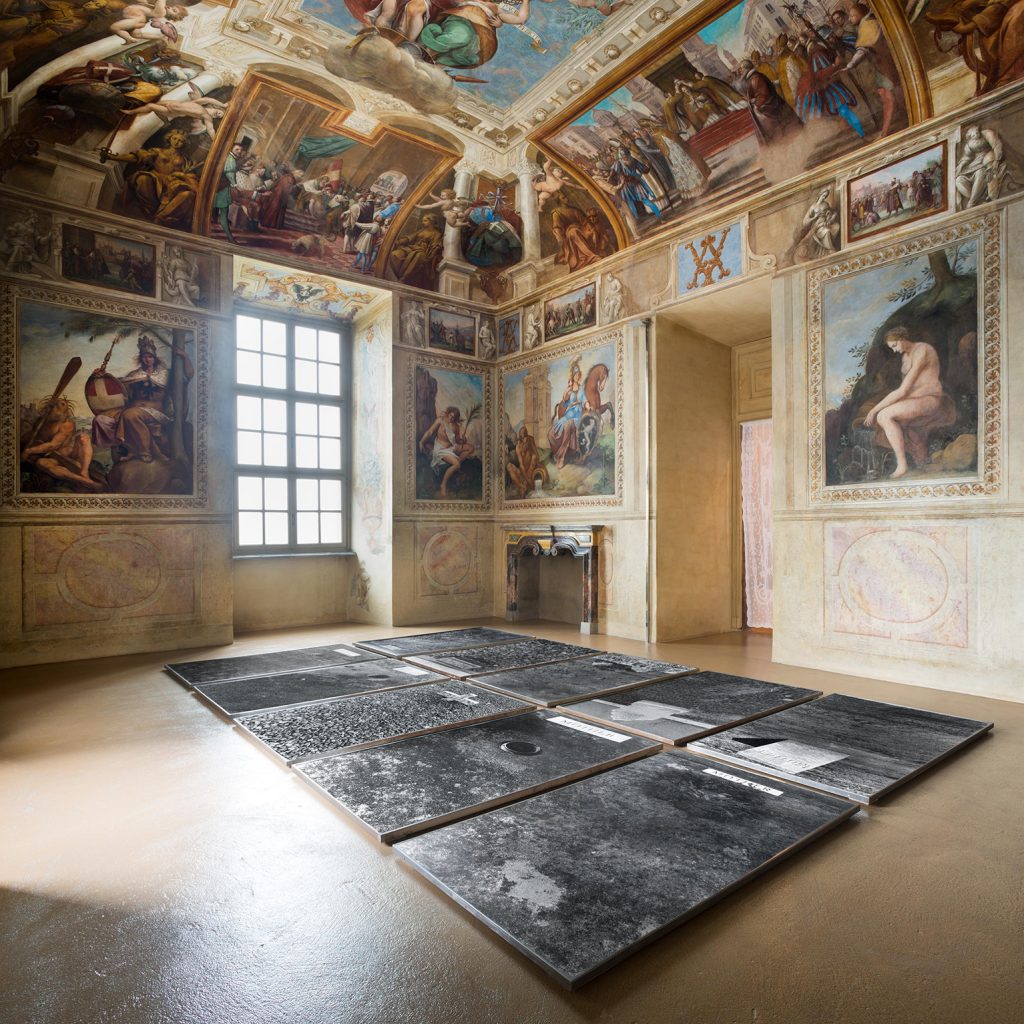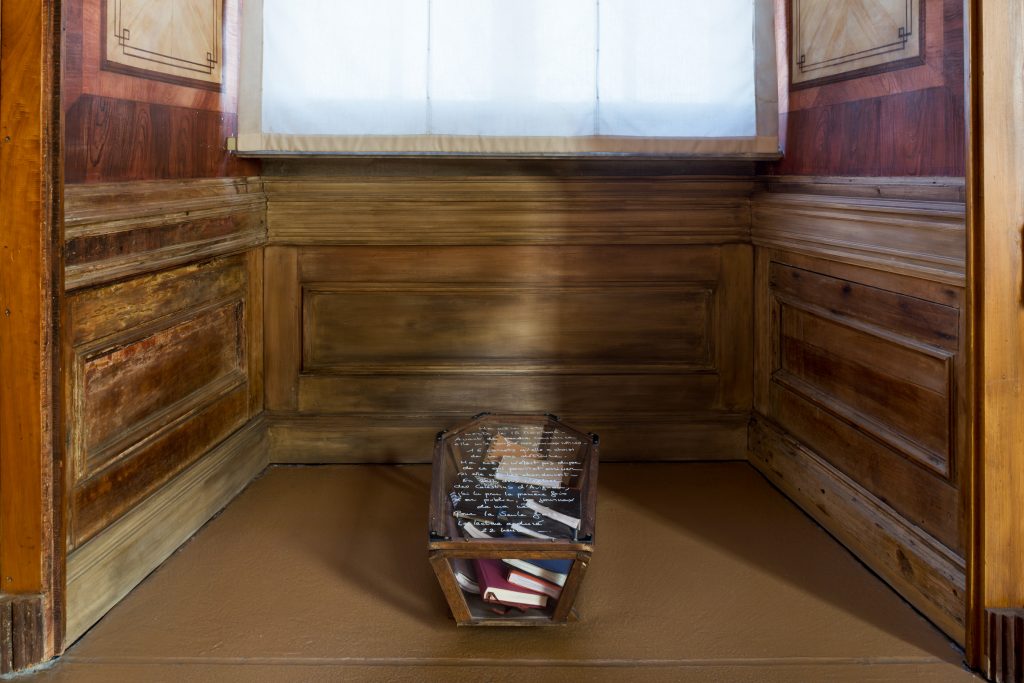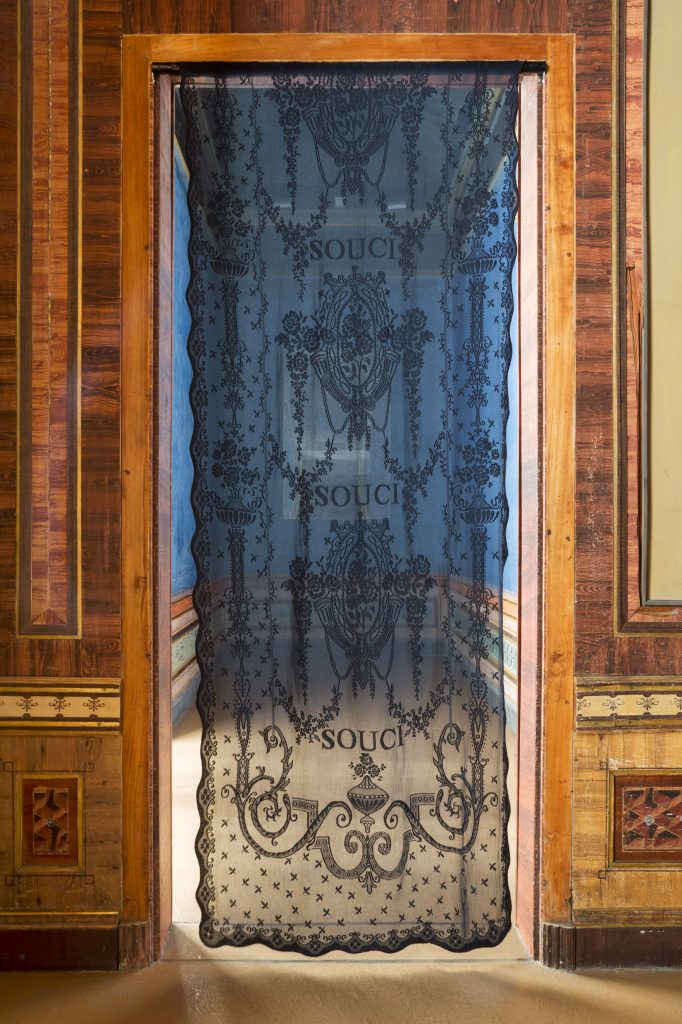Sophie Calle. MAdRE

11 october 2014 - 15 march 2015
curated by Beatrice Merz
The exhibition concept focuses on two important projects the artist has carried forth for some years now: Rachel, Monique and Voir la mer. The comparison of these significant projects proposes two itineraries that are both distinct and united, including works that revolve around themes of affection and emotion, of death, of the analogy mother|sea (madre|mare) at the root of this exhibition’s title: a sea that welcomes and gathers, covers and invests an immensity of contrasting feelings and emotions.
This artist has always worked with topics such as detaching from a loved one, relationship break-ups, intimate life in general, and is able to effectively render not only the emotions but also the philosophical side, the reflection these arouse, accompanying the cultural elaboration of personal experience through such precise organization that may even seem obsessive, made of objects, videos, and texts: a sort of mise en place and theatre arrangement without scene performance. A process of appropriation through images where visitors, if they feel lost, may rediscover a course and in the end make it their own, like in a role-play novel.
Since the late 1970s, Calle has used provocative and quite controversial methods, closely relating her own emotions with the phases and events in her own personal life. The Castello di Rivoli exhibition reveals the artist’s “image accumulator” side together with her ability to make these totally essential, verging on minimal. Pure emotions, we could say.
The emotional aspect of the artist’s oeuvre does not shadow the analytical one; the questions on what it means to not see, what not seeing is. In other terms, a philosophical reflection on what it is we don’t see, on the role of relations and memories, on the paradox of the nature that embraces, that creates and destroys, on the blindness that spawns unawareness, on the absence of sight determined by the definitive aspects of detachment. There is an epic quality to the work of Sophie Calle that is evident in facing the theme of everyday tragedy, making us share the personal pain, with a freeing and mnemonic effect.
